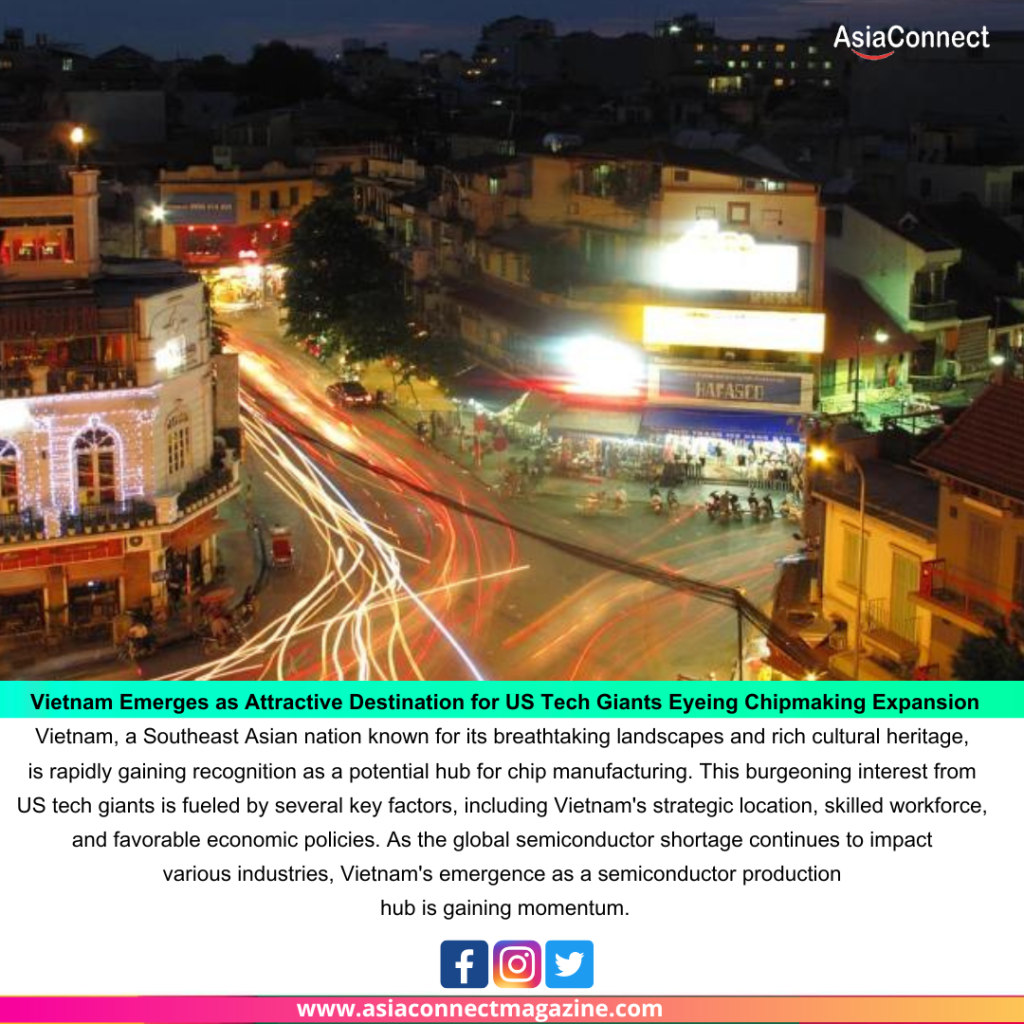
Vietnam Emerges as Attractive Destination for US Tech Giants Eyeing Chipmaking Expansion
Vietnam, a Southeast Asian nation known for its breathtaking landscapes and rich cultural heritage, is rapidly gaining recognition as a potential hub for chip manufacturing. This burgeoning interest from US tech giants is fueled by several key factors, including Vietnam’s strategic location, skilled workforce, and favorable economic policies. As the global semiconductor shortage continues to impact various industries, Vietnam’s emergence as a semiconductor production hub is gaining momentum.
The Global Semiconductor Shortage
The global shortage of semiconductors has been a significant challenge for industries ranging from automotive to consumer electronics. The COVID-19 pandemic disrupted supply chains and increased demand for electronic devices, leading to a shortage of critical components. This crisis has highlighted the importance of diversifying semiconductor production, reducing reliance on a few key players, and exploring new manufacturing hubs.
Vietnam’s Strategic Appeal
Vietnam’s strategic location in Southeast Asia is a major draw for US tech giants eyeing chipmaking expansion. The country’s proximity to key Asian markets, such as China, South Korea, and Japan, makes it an attractive destination for semiconductor production. Additionally, Vietnam’s well-developed infrastructure, including ports and logistics, facilitates the movement of raw materials and finished products.
Skilled Workforce and Competitive Labor Costs
Vietnam boasts a growing pool of highly skilled engineers and technicians, making it a favorable destination for high-tech industries like semiconductor manufacturing. Vietnamese universities and technical schools are actively producing graduates with expertise in electronics and engineering, providing a talent pipeline for tech companies. Furthermore, the competitive labor costs in Vietnam make it cost-effective to establish semiconductor production facilities, compared to more expensive regions.
Government Support and Investment Incentives
Vietnam’s government has been proactive in promoting the development of the semiconductor industry. It has introduced various policies and incentives to attract foreign investment in this sector. These incentives include tax breaks, land grants, and simplified administrative procedures for businesses entering the semiconductor market. These measures are aimed at creating a conducive environment for tech giants to establish their manufacturing operations.
Existing Investments and Expansion Plans
Several US tech giants have already made significant investments in Vietnam’s semiconductor industry. Intel, a prominent player in the semiconductor market, has operated an assembly and test facility in Ho Chi Minh City for years. In 2020, the company announced plans to invest $475 million to expand its operations in Vietnam. Additionally, other companies like Qualcomm are exploring partnerships and investments in the country to meet growing global demand for chips.
Challenges and Competition
While Vietnam presents a promising opportunity, there are challenges to overcome. Establishing a semiconductor manufacturing plant is a complex and capital-intensive process that requires substantial investment. Additionally, competition is fierce among countries aspiring to become semiconductor hubs. Established players like Taiwan, South Korea, and China have a head start in terms of infrastructure and expertise.
The Road Ahead
Vietnam’s emergence as an attractive destination for US tech giants eyeing chipmaking expansion is a significant development in the semiconductor industry. As the global demand for semiconductors continues to rise, diversifying production locations becomes essential for supply chain resilience. Vietnam’s strategic location, skilled workforce, and government support create a compelling case for investment in the country’s semiconductor sector.
In conclusion, Vietnam’s ascent in the semiconductor industry underscores the nation’s growing importance in the global tech landscape. US tech giants, recognizing the potential of Vietnam as a semiconductor production hub, are taking steps to capitalize on this opportunity. With the right investments, partnerships, and government support, Vietnam has the potential to play a crucial role in addressing the global semiconductor shortage and contributing to the industry’s growth and innovation.




